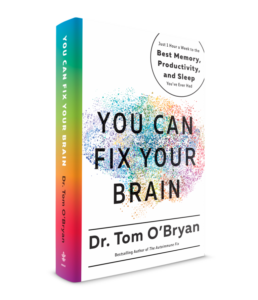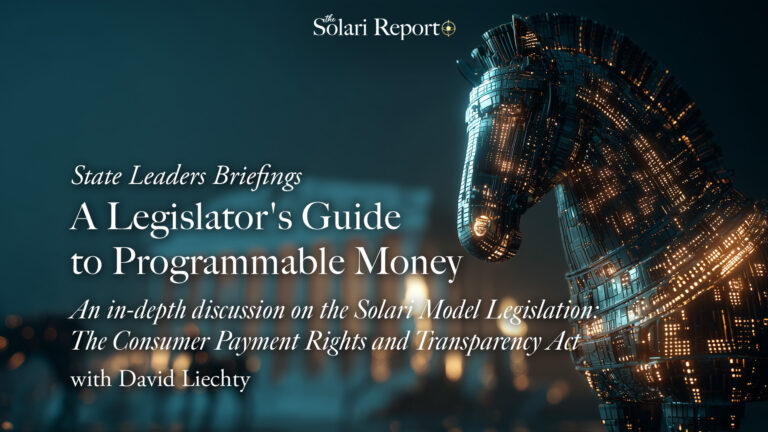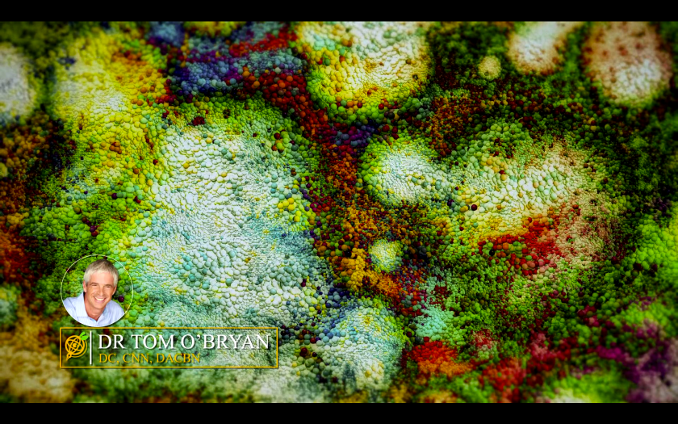~ Check out the Introduction to the Solari Report Wellness Series here ~
“All Disease Begin In The Gut” ~ Hippocrates (460 – 370 BC), a physician from Ancient Greece, often considered to be the father of modern medicine.
By Brigitte Mouchet
It seems like there is no better topic to launch the Solari Report Wellness Series than the gut microbiome. Hippocrates (460 – 370 BC), a physician in Ancient Greece often considered to be the father of modern medicine, said “All Disease Begin In the Gut”. Although we know that this statement is not entirely accurate, it contains incredible wisdom and foresight considering the complexity of this organ. We are just starting to scratch the surface in our understanding of the gut, its ecosystem—the gut microbiome—and its role in maintaining physical but also mental and emotional health.
TheGoodGut tells us that:
“The human microbiome is a remarkable ecosystem of largely ‘good’ bacteria and microbes that live on and in the human body. These micro-organisms are believed to influence everything from our weight, our immune health, our susceptibility to disease and even our mood.
Our bodies are home to between 40 and 100 trillion microbes according to current estimates– weighing as much as 2 kg (4lb). Most live in our intestine and make up what is known as our gut microbiome.”
It is particularly important to be aware and knowledgeable about the health of our microbiome because of the dramatic increase in people affected by so-called chronic diseases, which are now believed to be caused by chronic inflammation. Where does inflammation come from? It is the response of our immune system to foreign invaders—an extremely complex topic that is still not fully understood. There is however enough evidence today linking inflammation to gut health.
In our interview, I talk to Dr. Tom O’Bryan, a pioneer in gluten sensitivity and gut health, and a passionate health advocate. Dr. Tom is on a mission to educate patients and practitioners so people can “get out of the pond” of chronic disease and get their health back. He wrote two books: The Autoimmune Fix and You Can Fix Your Brain, where he provides practical information on how to do just that.
In Let’s Go To The Movie I chose a video: Fermented Vegetables Demo as adding fermented foods to your diet is one of the easiest and most powerful ways to improve the health of your gut microbiome.
https://youtube.com/watch?v=05lVOmj1Pqg
My Hero of The Week is Dr. Mercola, another health advocate who has been providing the most up-to-date and useful natural health information and resources, as well as exposing corporate, government, and mass media hype that diverts people away from what is truly best for their health.
Please enjoy the first episode of the Wellness Series!
Related Reading:
The Good Gut: Website entirely dedicated to this topic with interesting research articles and practical information about foods that can heal the gut as well everything you need to know about probiotics.
Go With Your Gut: More information from Dr. Mercola about the gut microbiome and how to make your own fermented vegetables.
PubMed: Free resource developed and maintained by the National Center for Biotechnology Information (NCBI) at the National Library of Medicine® (NLM) giving you access to research articles on a wealth of topics. Just search.
The Human Microbiome: Learn.Genetics is offering material to those who want to learn more about this topic, beyond the gut microbiome.
Organic Food—Hype or Hope: Because GMO foods destroy the gut microbiome, it is crucial to choose organic foods whenever possible.
Thedr.com: Where Dr. Tom O’Bryan and his team help people optimize their health. And also where you can find Dr. Tom’s latest book: You Can Fix Your Brain.























































































































Bonjour Brigette,
Thank you for a fantastic interview with Dr. O’Bryan.
Could you please ask him two follow-up questions:
1) Does he recommend eating the prebiotic foods raw or is cooked okay?
2) I am a proponent of intentional/visual manifestation, so I am curious about the colorful photo that is at the top of this page. Is that what a healthy Gut Microbiome looks like?
Thank you and I can’t wait to hear your next interview.
Merci beaucoup, Brigitte.
Bill
Bonjour Bill,
Thank you, and I’m glad you liked the interview 🙂 I’ll be happy to pass your questions on to Dr. Tom. The prebiotic foods being mainly root vegetables (sweet potatoes, etc.), those would be cooked in most cases. Although you can eat raw celery root as well. Regarding the colorful image we used, it has more esthetic value than anything else, and it was also meant to get people’s attention. This being said, I’m a big believer in visualization as well, but will need to double check that image to see if it is a realistic representation or not. I’ll get back to you on this. Thanks again!
Bonjour Brigette,
Thank you for a fantastic interview with Dr. O’Bryan.
Could you please ask him two follow-up questions:
1) Does he recommend eating the prebiotic foods raw or is cooked okay?
2) I am a proponent of intentional/visual manifestation, so I am curious about the colorful photo that is at the top of this page. Is that what a healthy Gut Microbiome looks like?
Thank you and I can’t wait to hear your next interview.
Merci beaucoup, Brigitte.
Bill
Bonjour Bill,
Thank you, and I’m glad you liked the interview 🙂 I’ll be happy to pass your questions on to Dr. Tom. The prebiotic foods being mainly root vegetables (sweet potatoes, etc.), those would be cooked in most cases. Although you can eat raw celery root as well. Regarding the colorful image we used, it has more esthetic value than anything else, and it was also meant to get people’s attention. This being said, I’m a big believer in visualization as well, but will need to double check that image to see if it is a realistic representation or not. I’ll get back to you on this. Thanks again!
Excellent topic! And I suppport the guest’s comment that this kind of change takes time.
I started a few years ago by limiting fast carbs, then increasing the animal fats, mostly bacon! What worked for me was to not try to cut out the “bad” things, but to slowly introduce the good. Eventually, over many months, the transition was under way. It’s also a good way to test small changes in diet to see how they effect me personally. For example, there’s something about cottage cheese that just doesn’t work for me.
Can’t wait for the next installment in the series!
Thank you John! I agree that we all need to experiment with this information as our bodies react differently. Glad you’re aware of what’s working and not working for you.
I was inspired to make sure to take my stainless steel coffee container for coffee on the road today – with my own stainless steel utensils for the food I packed for the road. No plastics!
Wonderful! And I like my bamboo utensils 🙂
Excellent topic! And I suppport the guest’s comment that this kind of change takes time.
I started a few years ago by limiting fast carbs, then increasing the animal fats, mostly bacon! What worked for me was to not try to cut out the “bad” things, but to slowly introduce the good. Eventually, over many months, the transition was under way. It’s also a good way to test small changes in diet to see how they effect me personally. For example, there’s something about cottage cheese that just doesn’t work for me.
Can’t wait for the next installment in the series!
Thank you John! I agree that we all need to experiment with this information as our bodies react differently. Glad you’re aware of what’s working and not working for you.
I was inspired to make sure to take my stainless steel coffee container for coffee on the road today – with my own stainless steel utensils for the food I packed for the road. No plastics!
Wonderful! And I like my bamboo utensils 🙂
Great topic and interview! I highly recommend people look into the work of Dr. Zac Bush and his product “Restore”. I can say from first hand experience with this product that it helps elevate health and coherence in the human body. I find it to be a big component in my “Survive and Thrive” strategy.
Thanks Steven! I am not familiar with that product but I’m glad it’s working for you. I will do some research on it. Thanks for sharing your experience!
Sofia Smallstorm swears by Restore. I tried on Jeffrey Smith’s recommendation – which counts for a lot with me – and did not notice a change.
Great topic and interview! I highly recommend people look into the work of Dr. Zac Bush and his product “Restore”. I can say from first hand experience with this product that it helps elevate health and coherence in the human body. I find it to be a big component in my “Survive and Thrive” strategy.
Thanks Steven! I am not familiar with that product but I’m glad it’s working for you. I will do some research on it. Thanks for sharing your experience!
Sofia Smallstorm swears by Restore. I tried on Jeffrey Smith’s recommendation – which counts for a lot with me – and did not notice a change.
Thank you, Brigitte, and than you Catherine for bringing Brigitte to your listeners!
Dr. Tom O’Bryan interview was EXCELLENT. In 40 years of studying nutrition/food energetics, etc… I have never heard the piece about the taste-buds not being designed to “sample” liquids… because the only fluid was water.
It’s wonderful that the “kick off” for the series is on the gut microbiome. Even mainstream medicine is looking at the importance of this issue, the same way they were looking at inflammation 10 years ago. Of course, they are always a little tardy getting to the party.
Look forward to hearing more from Brigitte and The Solari Wellness Series!
Thanks David! I had never heard the comment about the taste-buds either. And I’m wondering why they would work differently with liquids. I’ll see if I can find an explanation.